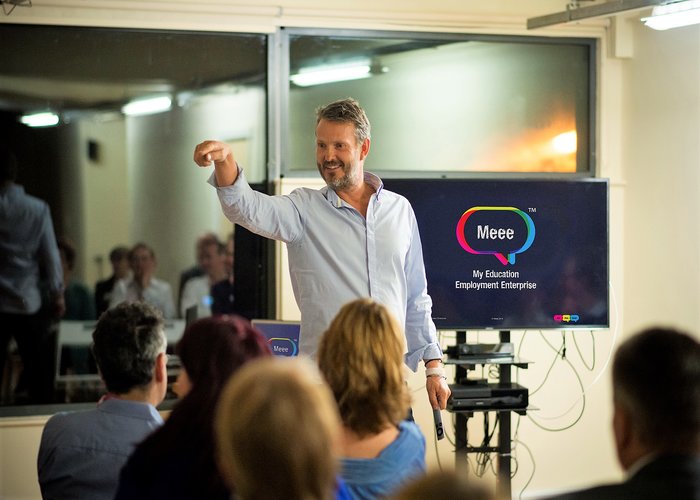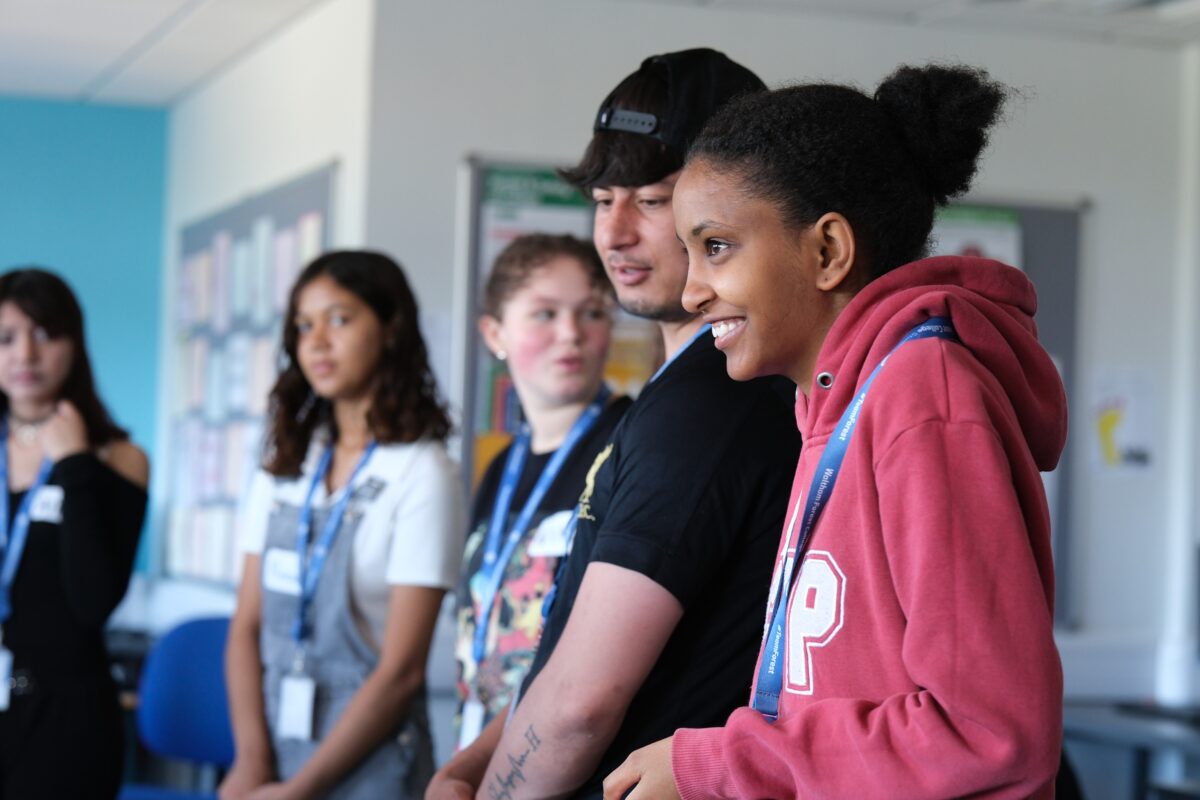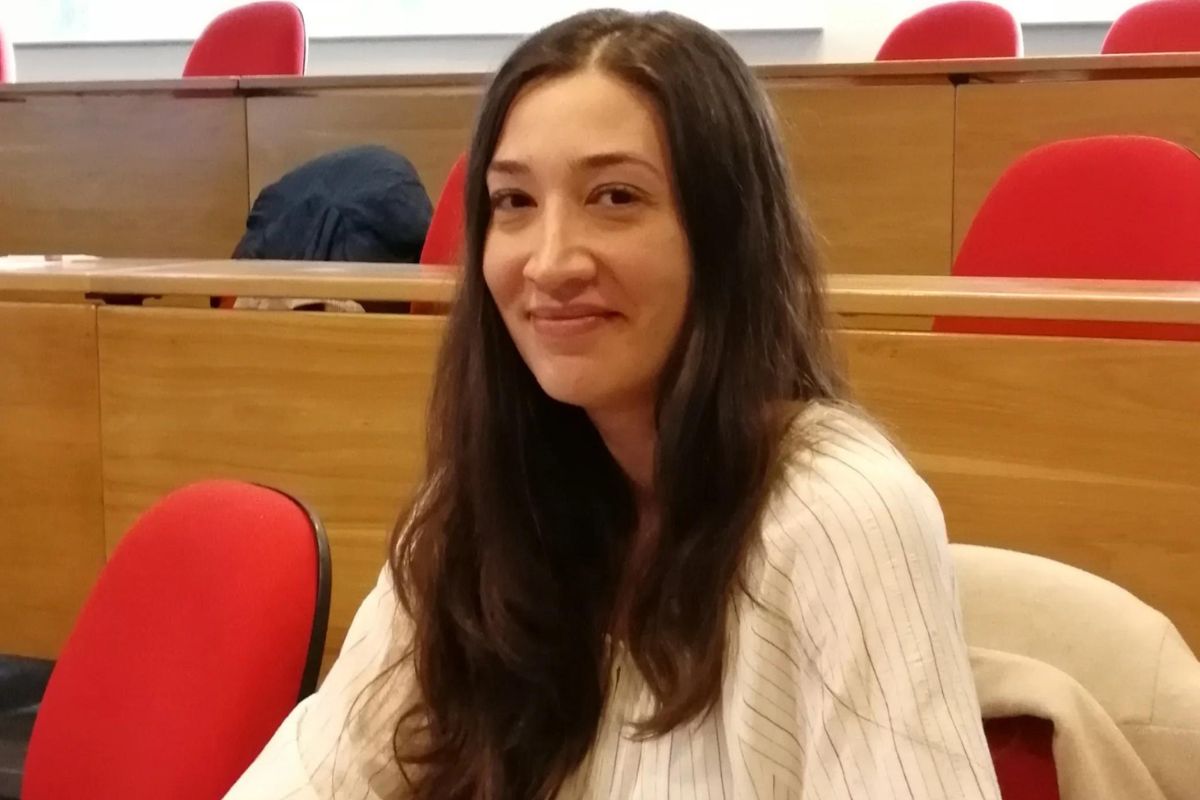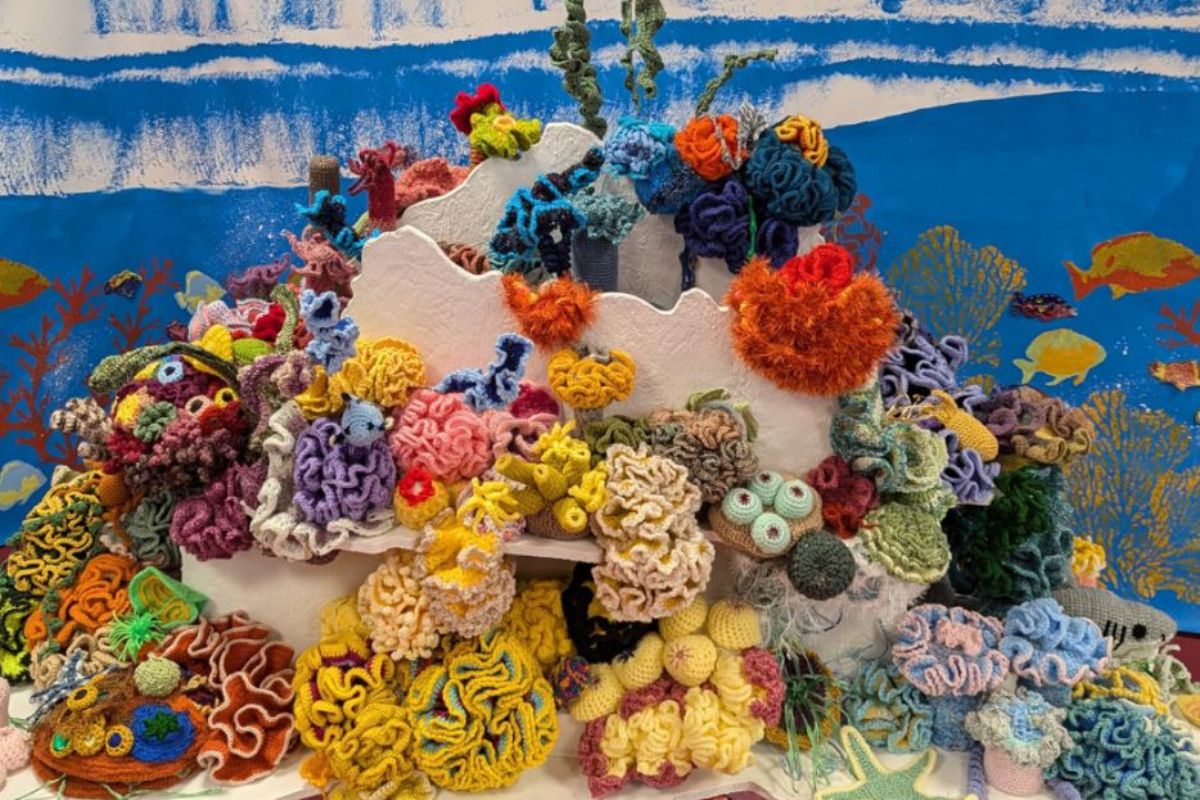7 great ways to help young people cope with change and uncertainty

Wow – it’s nearly Christmas! Where on earth did 2021 go? Time marches on – even in global pandemics.
Life evolves and changes all the time and sometimes those changes are tough. Sometimes they are exhilarating and exciting. And occasionally they deliver surprising silver linings.
What will 2022 bring us? We have no way of knowing but we can pretty much guarantee it will involve more change.
New adventures, new opportunities, new challenges, new friends, new worries, new joy. Learning how to cope with change is a life skill we all need.
I’m a great believer in our infinite capacity to change and we can change in a heartbeat through tiny ‘micro-moments’ of learning or adaptation that allow us to actively take charge of our situation and emotions in the moment, reset and bring more of our best to help ourselves and others.
These miniature shifts are useful for everyone including youngsters who can find change especially challenging.
Each micro-moment intervention is designed to be actionable in a minute and I’ve written three books on these micro-moments for life, work and family.
Here are seven simple ways to help young people cope with change and build resilience, in just a few minutes a day:
- The Joy of Failure
Change is by definition a move from the known to the unknown. The known is the comfort zone. Leaving that safe space invites failure because we are doing something new. Everyone learned to ride a bike through failure. There is always fear and anxiety, imperfect balance and the inevitable bruises and scrapped knee along the way. But the moment it all comes together is always worth it. The joy of failure.
Next time you need to encourage a child to embrace change remind them of the joy on the other side of failure. There is no way around the failure. Success comes from going through failure not around it. As Elizabeth Spiegel, once said, “losing is something you do, not something you are”. Failure is not something to be avoided but welcomed and relished. It represents another step toward successful change. It means progress.
There will always be days where we stuff up. Times when we feel we are getting worse rather than better. That’s really OK. We just need to keep going. And dial down the unrealistic expectations. No one goes from bike stabilizers to Olympic Gold medalist in BMX in a fortnight! Always encourage youngsters to stop expecting immediate perfection and focus instead on consistent effort. This attitude will always help them to unlock the valuable assets that failure provides because it helps them to improve.
- Trust, Respect and Independence
Esther Wojcicki, mother of three talented daughters and author of the book How to Raise Successful People has some great insights into how to prepare young people for life. Instead of focusing purely on success and achievement, she suggests that we should be focusing instead on building trust, respect and independence.
She talks of the importance of giving youngsters more control over their lives by encouraging them to make choices. Instead of telling the young what to do give them pre-defined choices such as, “Would you like a ham sandwich or egg and cress”, or “Would you prefer to tidy the classroom or read a chapter of our book.”
Youngsters can do far more than we assume they can and the quicker they experience that capability for themselves the faster they gain confidence and learn to trust themselves. Encourage them to take personal responsibility and work out what they can do to make the change they are experiencing easier or more palatable for them. This is a great skill for anyone to learn at any age.
- Helpful Habits
Isn’t it interesting that we are brilliant at creating negative habits but not so great at creating helpful ones? When faced with change encourage youngsters to stop for a moment and consider the question – what do I love about life? Just put the change aside for a moment and consider what makes them happy. Is it meeting up with friends, going to the cinema, making cupcakes or listening to really loud music in their bedroom? Is it reading a thriller novel or watching their favourite TV show? Maybe just hanging out with family is fun. Identify what it is and encourage them to do more of that alongside the change.
It’s really obvious but too many of us forget this simple advice. Identifying and hanging on to positive habits, especially during times of change can help us all to feel happier and safer during the transition.
One helpful habit that is super effective is the art of appreciation. Encourage the young to give this a try for at least a week. In the shower in the morning(or evening) instead of listening to music on their phone, take a few minutes to think about three things that they are most grateful for in their life. Enjoy those things in the midst of change.
- Garbage in/Garbage out
It’s so easy to reach for comfort food or veg out at home when we are dealing with stressful change. But it’s the wrong approach. If we don’t support ourselves with healthy food, drinking plenty of water and moving physically, we make the change harder not easier. These pillars are important all the time for all of us but especially so during change.
Encourage youngsters to make healthier choices around what they eat. If we eat rubbish food, we feel rubbish. A really easy swap that can make a huge difference is to swap fizzy drinks for water. Fresh fruit instead of sweet or salty snacks. Exercise also results in almost immediate improvements to mood and energy levels. Moderate exercise – even just a five-to-ten-minute brisk walk -can have a significant positive effect and help us deal with change better. This is also true for youngsters. One study even found that the walker still felt better two hours after a ten-minute walk. Encourage youngsters in the middle of change to get active. For example, dancing around their bedroom to their favourite music for a few minutes.
It’s even been proven that standing in the superman pose for as little as two minutes can reduce stress levels by a whopping 25 percent AND increase confidence levels by 20 percent! The superman pose, is exactly what it sounds like. Stand up strong, with your legs hip distance apart, hands on your hips as though you’ve just landed to save the world! Hunched over your phone has the opposite effect with two minutes causing a10 percent reduction in confidence hormone and a 15 percent increase in stress levels. Worth knowing for all of us considering how much time we spend hunched over our phones.
Next time you meet a young person needing a confidence boost get them to engage in 2 minutes of the superman pose. However silly they feel doing this to start with, it will do wonders for their health and wellbeing.
- The Natural Health Service
In the UK we are incredibly fortunate to have the National Health Service, but we also have the Natural Health Service which is also worth shouting about. Change, even positive change can cause disruption and elevated stress. And that stress can cause havoc to our health and mental wellbeing.
One of the easiest ways to reduce stress levels in the young and in adults is to get into nature. Get youngsters to pay particular attention to the trees, any wildlife they see, maybe a squirrel. Just enjoy some time in nature, including local parks. When youngsters are stressed or struggling with change this type of activity can be a great way to connect and open up a conversation. It can be hard to talk face-to-face a sit feels too direct. But talking shoulder-to-shoulder while they are walking in nature often makes it easier to open up and share what they are feeling.
- Use the 3Ps
In his research, Professor Martin Seligman found that pessimistic people tend to explain life to themselves using the“3Ps”-personal, permanent and pervasive. In other words, when things get tough (and they get tough at times for all of us)a pessimist will take it personally and assume the problem is their fault. They will believe that it is permanent and will never improve. And finally, that a problem in one part of their life will automatically mess up all the other parts. This is rarely the case, a missed bus or a failed exam does not mean the end of the world or that the person is now going to get sick or fall out with a friend.
Seligman suggests purposefully using the opposite approach. Next time a young person is struggling, talk them through the 3Ps. Instead of assuming the challenge is personal, help them see that it may be outside their control. If they did mess up, what are they going to do to fix it. Next help them to appreciate that whatever it is, it’s short term. All things pass. And finally, help them to realise that it’s just an isolated incident and is not some prophecy of doom for the rest of their life. So not personal, not permanent and not pervasive.
There is clear a balance to be struck here. A failed exam may be down to lack of effort so it’s important to run through the 3Ps while asking question about what they are willing to do differently to create a different outcome.
- Social Media Detox
Sleep is when the body repairs and grows, so without good quality sleep all the stresses of change can be amplified. And this is true for the young as well as adults.
There are now countless studies into the negative impact of social media and too much screen time prior to bed.
Encourage youngsters to get rid of social media – even for a few hours a night before they plan to go to sleep. Nothing helpful will ever come from checking social media before trying to sleep. It is also better for their phone to charge in another room. The light and notifications, even if on silent interrupt sleep patterns.
Start with a small commitment – get the class to go without social media for an hour. Maybe 8pm to 9pm and then get everyone to report back the next day about the experience. How did they feel? Maybe build up the experiment to two hours and eventually a day or even a week. Start small and have them notice if they feel better.
By following some of the suggestions above and helping youngsters to do the same you can ensure everyone in class is in the best possible state of mind to manage change successfully. Being able to navigate change successfully without the angst is a key life skill for all of us and will always lead to a happier life.
Sid Madge, transformation and change specialist and founder of Meee











Responses